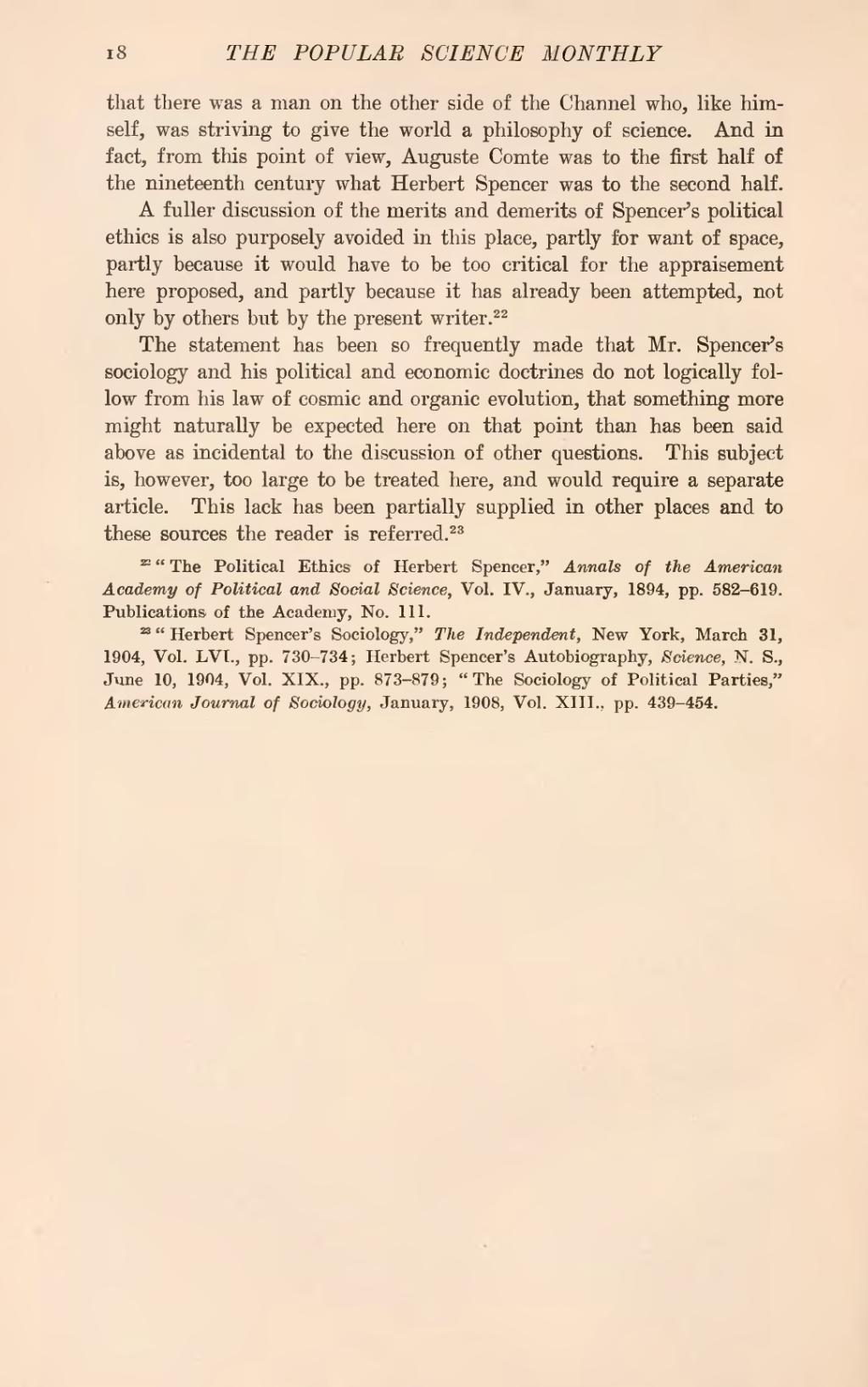that there was a man on the other side of the Channel who, like himself, was striving to give the world a philosophy of science. And in fact, from this point of view, Auguste Comte was to the first half of the nineteenth century what Herbert Spencer was to the second half.
A fuller discussion of the merits and demerits of Spencer's political ethics is also purposely avoided in this place, partly for want of space, partly because it would have to be too critical for the appraisement here proposed, and partly because it has already been attempted, not only by others but by the present writer.[1]
The statement has been so frequently made that Mr. Spencer's sociology and his political and economic doctrines do not logically follow from his law of cosmic and organic evolution, that something more might naturally be expected here on that point than has been said above as incidental to the discussion of other questions. This subject is, however, too large to be treated here, and would require a separate article. This lack has been partially supplied in other places and to these sources the reader is referred.[2]
- ↑ "The Political Ethics of Herbert Spencer," Annals of the American Academy of Political and Social Science, Vol. IV., January, 1894, pp. 582-619. Publications of the Academy, No. 111.
- ↑ "Herbert Spencer's Sociology," The Independent, New York, March 31, 1904, Vol. LVI., pp. 730-734; Herbert Spencer's Autobiography, Science, N. S., June 10, 1904, Vol. XIX., pp. 873-879; "The Sociology of Political Parties," American Journal of Sociology, January, 1908, Vol. XIII., pp. 439-454.

